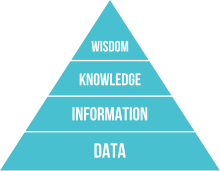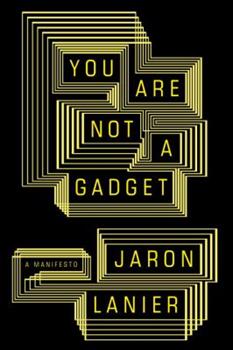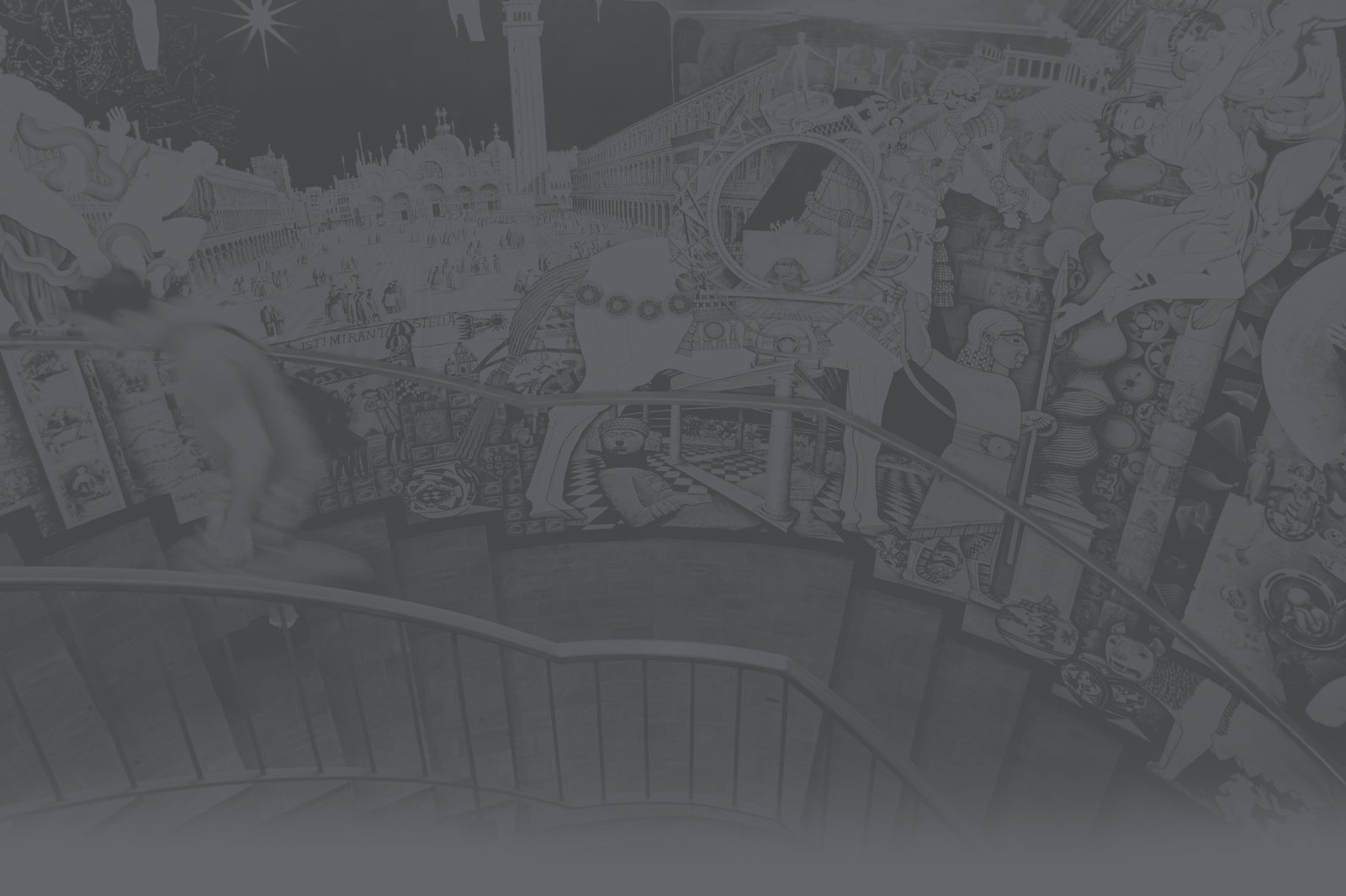Information is generally regarded as a good thing, especially in the context of learning. At the same time, the experience of too much information is one we can probably all relate to. It may even prompt us to realize that information and knowledge are not the same thing.
In the field of information science, there is a model that presents information as one of four layers in a pyramid. It sits above data and below knowledge and wisdom:
 Some scholars think that the source for this model is T.S. Eliot’s 1934 play The Rock, which asks,
Some scholars think that the source for this model is T.S. Eliot’s 1934 play The Rock, which asks,
Where is the Life we have lost in living?
Where is the wisdom we have lost in knowledge?
Where is the knowledge we have lost in information?
The lines of the poem are interesting to compare to the design of the pyramid. In the lines from the play, “we” are present, even if our primary action is loss. In the graphic, “we” are missing altogether.
The helpfulness of the graphic is debatable. It does not tell us how data might turn into information, or information to knowledge, and so on. And a play about the collapse of Christianity by a poet whose work stands marred by his own anti-Semitism raises questions about what kind of life, wisdom or knowledge is actually being described.
Peering through either imperfect lens, I still find it helpful to reflect on the differences between data, information, knowledge, and wisdom, and to ponder their relationship. It makes me think about how often I deal in information, and how and when I am motivated by knowledge, or act out of wisdom.
To look at this another way, consider the words of technologist Jaron Lanier. In his book You Are Not a Gadget: A Manifesto, he writes, “information is alienated experience” (2010, p. 28).
 Information is alienated experience. I am still working out what he means by this. The book is very dense and full of philosophy I don’t understand. Ironically, this state of “not knowing what is meant” might be quite relevant. The information of that sentence is not yet knowledge to me, because I don’t fully understand the context. The words are right there on the page, but the meaning is not.
Information is alienated experience. I am still working out what he means by this. The book is very dense and full of philosophy I don’t understand. Ironically, this state of “not knowing what is meant” might be quite relevant. The information of that sentence is not yet knowledge to me, because I don’t fully understand the context. The words are right there on the page, but the meaning is not.
I have seen this phenomenon play out many times this semester in my role as First Year Experience Librarian. Many students have come to me for help finding sources for their research papers, which I am glad to provide. And yet, sometimes completing that step does not fully assuage their anxiety. Having located the required materials, they then realize that “sources” are just that—beginnings. Sources of information and representations of knowledge, but not yet part of the student’s own knowledge.
In thinking about data, information, knowledge, and wisdom, it seems to me that we all tried our best to bring our past knowledge and wisdom to bear on this semester. At least, what we thought we knew about this semester. We weren’t always right. We didn’t have the wisdom then that we have now.
For me, some of the best things that happened this fall were the honest conversations I had with students and other staff and faculty about how things were really going. It helped reconnect me to this community. So if you were one of the brave students who came to see me or a colleague I saw on campus and chatted with briefly, thank you.
I don’t know what next semester will be like. I think we’re still figuring out how to meet our own and each other’s needs as we go. But I feel encouraged, if not by any particular “what” than by the “who” I’ve gotten to know this fall.
References
DIKW pyramid. (2021, September 28). In Wikipedia. https://en.wikipedia.org/w/index.php?title=DIKW_pyramid&oldid=1047007262
Eliot, T. S. (1934). The rock: A pageant play. London: Faber & Faber.
Lanier, J. (2010). You are not a gadget: A manifesto. New York: Alfred A. Knopf.

Recent Comments